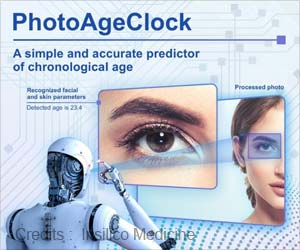Google is bringing in a health-based AI to tackle all your medical problems.
- Google’s big language model is ready to set foot into the healthcare industry
- It focuses on accessing medical information and providing reasonable solutions
- It has also started detecting breast cancer and other severe diseases
What Makes this Health-Based AI Significant?
Big tech companies are racing to incorporate AI into their products, but the results, particularly in health care, might have unintended effects or hazards, such as racial bias, privacy concerns, and ethical issues.Google's ‘big language model’ for the medical industry - an AI chat-bot named Med-PaLM 2—now consistently passes medical exam questions with a score of 85%, putting it at the ‘expert’ doctor level, according to the company.
According to the business, this is an 18% improvement over the system's previous performance and ‘far outperforms similar AI models.’
ChatGPT, a competing generative AI tool, also passed the medical exams—but just narrowly. (OpenAI, the company that created ChatGPT, has now published a new, more powerful version of its underlying technology.)
Google's technology is being trained to "access medical information, answer medical inquiries properly, and provide reasoning," according to the corporation.
Google Acknowledges AI's Limitations in the Medical Field
"There’s still a lot of work to be done to make sure [Med-PaLM 2] can work in real-world settings," said Yossi Matias, Google's vice president of engineering and research, and Greg Corrado, its head of health AI.Google found 'significant gaps' when the tool was tested against 14 criteria, including scientific factuality, precision, medical consensus, reasoning, bias, and harm, per the post.
"We look forward to working with researchers and the global medical community to close these gaps and understand how this technology can help improve health delivery."
Meanwhile, Google's conversational AI tool Duplex has called hundreds of thousands of healthcare providers in the United States to determine if they accept Medicaid. The findings are now available via Google Search, just in time for the March 31 re-enrollment deadline.
Google Search results will soon feature "providers that identify as community health centers delivering free or low-cost care," according to the company.
In addition, an updated version of Fitbit's health metrics dashboard will be accessible soon, in certain cases without a subscription, to assist consumers in mapping changes and patterns in their breathing rate, skin temperature, and blood oxygen levels.
What they're saying: "The future of health is consumer-driven," Karen DeSalvo, Google's chief health officer, told reporters.
"People will expect a mobile-first experience with more personalized insights, services, and care."
Extend your view: Google is also using its AI capabilities to help provide high-quality, low-cost medical diagnostics around the world.
In Taiwan, ultrasound machines incorporating Google AI are being used to identify breast cancer, while in Kenya, they are being used to determine gestational age in expectant women.
Another Google AI technique for detecting tuberculosis in chest X-rays is being pushed out in Sub-Saharan Africa.
Reading Between the Lines
The firm is well aware of the argument that "Dr. Google" might occasionally lead customers to erroneous or unsafe health advice.To address these issues, YouTube Health has been adding information panels about the source of some videos to help people assess their legitimacy.
Another new YouTube feature helps people "find human answers" to their health questions, said Garth Graham, director and head of health care and public health at Google/YouTube.
Google also announced a partnership with ThroughLine, which links consumers in over 100 countries to free mental health crisis support.
"This will increase the number of crisis helplines that appear at the top of search results," reads a blog post from DeSalvo. The feature is aimed at "searches related to suicide, domestic violence, and other personal crisis topics."
The Broad Picture
Even as AI makes incredible gains toward improving health care, tech corporations and others have struggled with what they've unleashed.A Stat News investigation discovered that older people covered by Medicare Advantage are having their benefits cut off by AI algorithms, regardless of how serious their medical needs are. According to the Wall Street Journal, Verily Life Sciences, a unit of Google's parent company Alphabet that focuses on treatment personalization, began laying off employees in January.
On the plus side, AI is beginning to discover breast cancers that radiologists miss, according to the New York Times.
The development is "one of the most tangible signs to date of how AI can improve public health," per the Times, yet the technology produces too many false positives and still needs to "show it can produce accurate results on women of all ages, ethnicities, and body types."
Bottom line
Medicine will always require a healthy blend of technology and human expertise."AI cannot fix all of health care's problems on its own," said Alan Karthikesalingam, the surgeon-scientist who oversees Google Health's machine learning research division. "Medicine, after all, is about caring for people."
Source-Medindia













